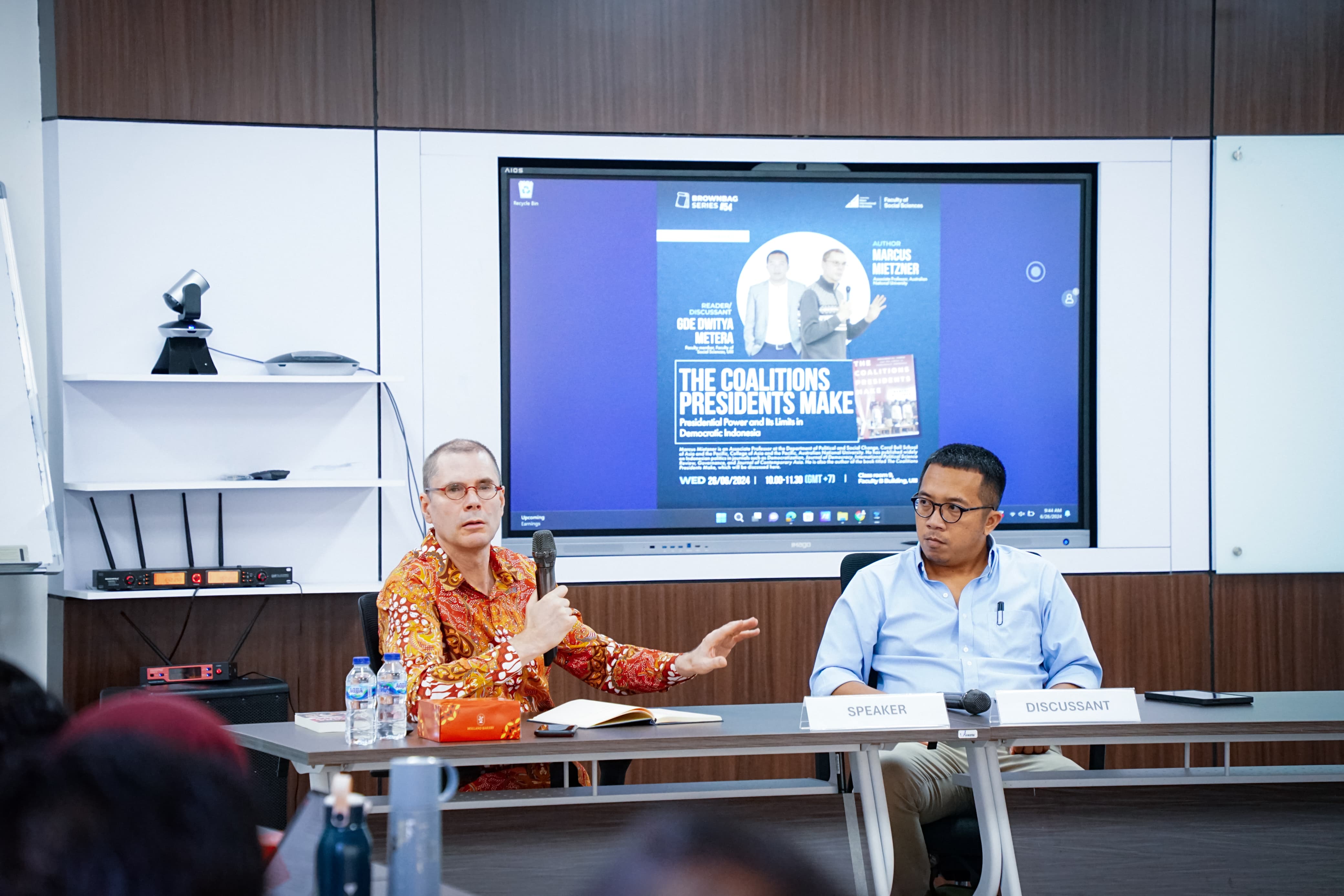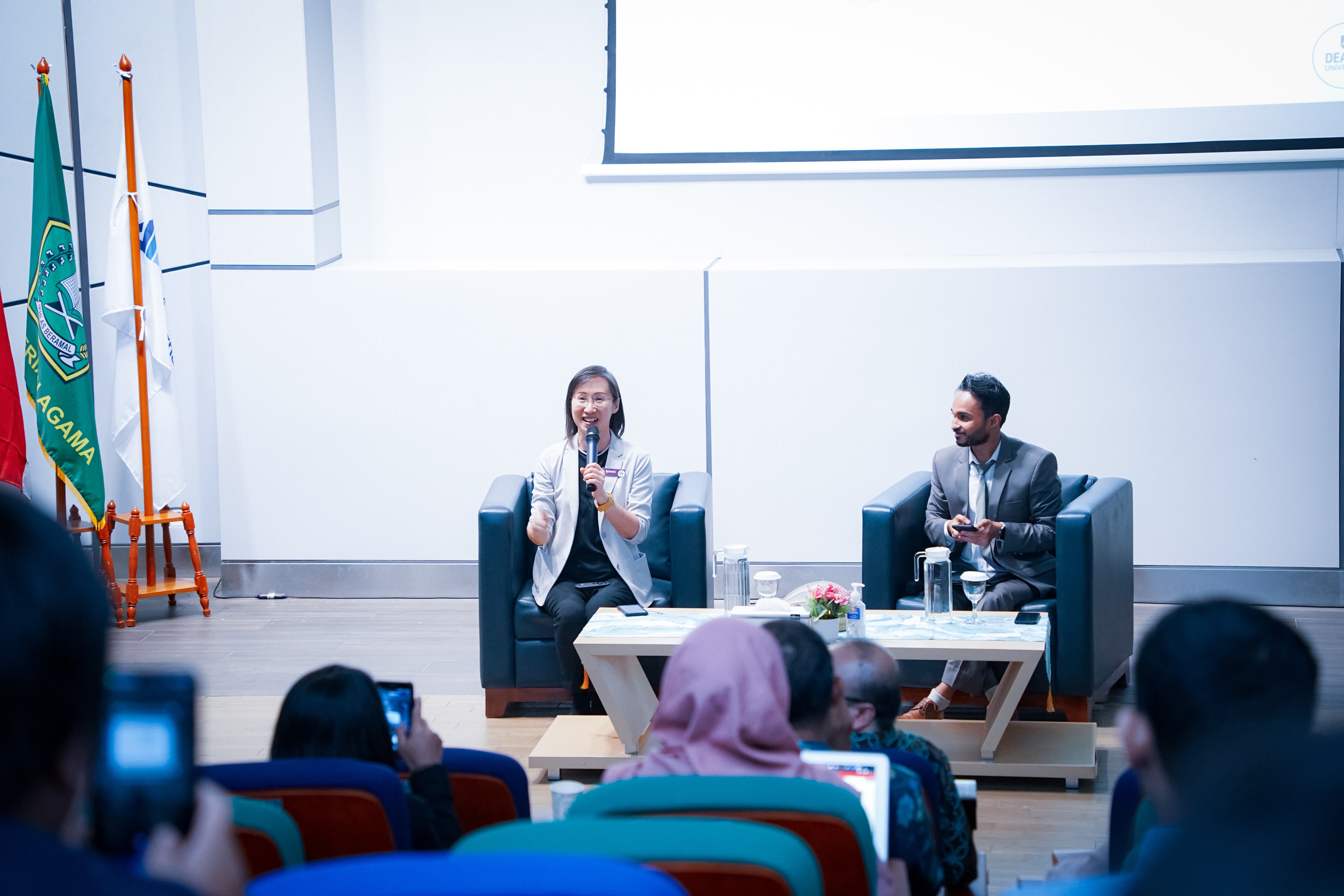Book Discussion on ‘The Coalitions Presidents Make’ with Assoc. Prof. Marcus Mietzner at UIII
June 29, 2024Contributor: Achmad Jatnika | Editor: Supriyono

Hosted by the UIII Faculty of Social Sciences, Political Expert Marcus Mietzner, an Associate Professor at the Australian National University, discussed his newly published book “The Coalitions Presidents Make: Presidential Power and Its Limits in Democratic Indonesia” at UIII Campus in Depok, on June 26, 2024.
Prof. Mietzner, a renowned expert in Indonesian politics, began his deep engagement with the country during his initial visit to Jakarta in 1986. Since then, he has authored numerous influential research articles, focusing on the dynamics of the Indonesian military and political parties. His work particularly emphasizes campaign financing, elections, and comparative electoral politics in Indonesia and Southeast Asia, showcasing his extensive expertise in these areas.
In his discussion, Prof. Mietzner highlighted Indonesia’s unique condition, saying that it has had a stable political condition in the past 20 years since the election of former President Susilo Bambang Yudhoyono in 2004. One indicator of the political stability was that the country had not faced any impeachment or attempted impeachment in the last four periods of the presidency.
| Read also: Asian Democratization Explored: A Book Discussion with Professor Dan Slater |
Prof. Mietzner argued the political stability that Indonesia has been through for the past 20 years was influenced by the government’s move to create a large coalition, that is not only built among the politicians but also with the non-party actors such as the military, the police, oligarchs, and religious groups.
| Read also: Tribute to Prof. Komaruddin Hidayat: 'Islamic Imagination' Book Released in Celebration of 70 Years |
“In his second term, Widodo’s coalition controlled 82 percent of parliamentary seats, and the size of Yudhoyono’s coalitions was not much smaller,” Prof. Mietzner noted. “In the knowledge of the Coalition, the larger the coalition the bigger the influence of president is,” he added.
| Read also: Imagination Brings Civilization From the Discussion of the Book |
The discussion with Prof. Marcus Mietzner was part of the Brownbag Talk hosted by the UIII Faculty of Social Sciences, inviting experts on politics and international relations to discuss contemporary issues in the fields. The talk has attracted critical dialogue and exchange of ideas between faculty members and students at the faculty, supporting UIII’s mission to empower academic communities and foster global outreach through critical scholarly discussion.
- Planning, Executing, Evaluating—Repeat: FoE Makes End-Semester Gathering a Tradition
- Residents Voluntarily Relocate as Land Clearance Progresses
- From Pixels to Planet: Exploring Tech's Role in Supporting Business Sustainability
- Rooted in Faith: How Waqf Forests Bridge Spirituality and Sustainability
- Who Shapes What We Know? UIII Workshop Challenges Global North’s Domination in Knowledge Production
- Exploring AI and the Future of Educational Leadership
- Improving Social Welfare and Development Through Zakat and Waqf
- Voices from Crimea: UIII's Commitment to Peace Dialogue on Ukraine’s Conflict
- Global Solidarity for Palestine: Universities, Youths, and NGOs Demand Justice
- Singapore Ambassador to Indonesia Visits UIII


